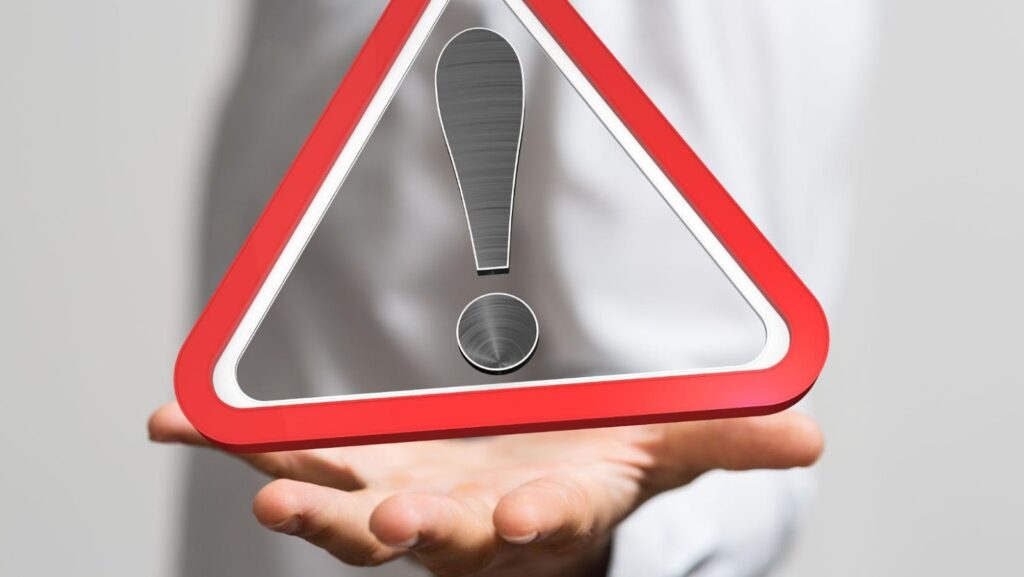
When it comes to addiction, early intervention is key—the earlier you recognize a problem and take steps to address it, the better your chance of long-term success. Whether it be drugs, alcohol, or something else, the symptoms of addiction can sometimes be tricky to identify.
This blog post will help to shed light on some common signs of an addiction so that family and friends can provide better support in times of need. From changes in behavior and emotional state to physical symptoms and financial hardship – we’ll discuss how to spot warning signs associated with addiction.
Physical Signs of Addiction
Drug addiction and alcohol abuse can have many profound effects on an individual. Physical changes can signal drug or alcohol addiction, from general health problems to financial strains.
Knowing the addiction signs will help identify the issue at an earlier stage when it may be easier to start recovery to avoid long-term health consequences and other financial problems due to a chronic disease.
Slurred Speech
Slurred speech is one of the most apparent signs of an individual suffering from drug abuse or severe intoxication. While slurring of words may be caused by various factors, such as fatigue and medical conditions, if it frequently occurs in conjunction with other physical signs of addiction, it may indicate drug use.
Dilated Pupils
Dilated pupils are one of the more recognizable physical signs of substance use disorder. In particular, dilated pupils are caused by a rise in blood pressure, usually observed as a result of substance abuse. Pupils become constricted or enlarged due to the activation of sympathetic nerves surrounding them.

Lack of Coordination
Substance abuse and addiction symptoms include a lack of coordination and poor judgment that may manifest in potentially dangerous decisions. Alcohol use disorder significantly impacts physical coordination because it directly affects the brain’s ability to regulate bodily functions.
This can cause impairments in speech, movement, reflexes, and other key physical characteristics, which will affect an individual’s overall coordination.
Fatigue
One of the common signs of addiction is fatigue. It is common for individuals struggling with addiction to consume substantial amounts of alcohol, suppressing how much sleep they get. Additionally, substances like opioids or stimulants can disrupt how well someone sleeps even if they are not drinking alcohol.
Behavioral Signs of Addiction
Behavioral signs and symptoms of addiction can manifest in many ways and are often environmental and biological. Substances that contain highly addictive drug components, such as opioids and benzodiazepines, can negatively affect both physical and psychological well-being.
Addictive behaviors can be triggered by environmental factors, such as exposure to drugs or alcohol or growing up in a household that views these substances as normal or acceptable.
On the biological side, long-term drug or alcohol abuse can lead to brain damage which alters behavior, making people more prone to addictive habits. These behavioral changes may result in increased substance use, feelings of depression or anxiety, physical withdrawal symptoms, ignoring responsibilities and obligations, and not engaging in recreational activities anymore.
Mental Health Disorders
Mental illness can be a significant contributor to substance abuse. Those dealing with addiction often have underlying mental health problems that have either gone undetected or untreated for long periods.
Thankfully support groups, counseling, and other forms of addiction treatment often include components to help address mental disorders an individual may have.
Loss of Control
One of the most upsetting yet sadly common behavioral signs of addictive disorders is the loss of control. This can manifest in many ways, from a declining performance at work or school to neglecting responsibilities and hobbies that a person previously valued.
Substance abuse victims lose control of their life and behavior, which can even extend to extreme measures such as losing one’s jobs or forgoing relationships.
Angry Outbursts
Addictive behavior often leads to unhealthy consequences for both the addict and their loved ones. One of the clear behavioral signs of addiction is angry outbursts. People struggling with addictive behaviors often experience mood swings that affect their ability to reason, which can cause them to become easily agitated and defensive.

Withdrawal Symptoms
Withdrawal symptoms are feelings of distress that a person struggling with addiction experiences when trying to detox from the substance or activity they depend on. Common withdrawal symptoms include anxiety, agitation, nausea, headaches, and intense cravings for the substance.
Insomnia
Insomnia is one of the most widely recognized behavioral signs of addiction. Though sleep patterns can vary from person to person, significant changes in sleep habits may indicate a problem with substance abuse or alcohol.
People suffering from an addiction may sleep for long periods of time and have difficulty sleeping throughout the night or may sleep for shorter periods, leading to exhaustion during their waking hours.
Weight Loss
One of the most common behavioral signs of addiction is weight loss, typically seen in conjunction with different signs and symptoms like depression, anxiety, and a decrease in personal hygiene. Unintentional weight loss may lead to physical health issues from insufficient nutrition or protein intake.
Different Types of Drug Addiction
Drug addiction is a growing problem today, evidenced by the number of synthetic drugs on the market and their consequent usage. The American Psychiatric Association further classifies nine different types of addictions, from stimulants to sedatives, which can have profoundly negative consequences for the addicted and those around them.
This can include illegal substances such as cocaine, heroin, methamphetamines, and other drugs with potential addiction consequences. Illicit drug use carries additional legal problems and health risks.
Heroin Abuse
Heroin addiction is a severe drug addiction that aggravates higher risk when combined with other substances due to compounded addiction-related issues. Consequently, addiction medicine professionals are positioned to help individuals work toward recovery and addiction treatment when heroin abuse has been identified.
Opioid Addiction
Opioid addiction is a type of drug addiction and, unfortunately, a growing problem in our society. Drug use of any kind can be detrimental to an individual’s health. Still, opioids are particularly harmful because they create intense drug cravings, increasing the risk of overdosing or death. Peer-evaluated studies have suggested that common opioids include prescription pain relievers, synthetic opioids, and heroin.

Cocaine Addiction
Cocaine addiction is a drug addiction caused by certain factors, including specific biological processes and environmental influences. Cocaine abuse has the same effect as any other drug addiction, including physical, mental, and financial problems.
Prescription Drugs Addiction
Prescription drug addiction is an issue that has been gaining attention from National Institute on Drug Abuse. People suffering from pain or mental health issues may be prescribed powerful medications that, when taken in higher doses than directed or for more extended periods, can lead to addiction.
Conclusion
If you or a family member notices changes in behavior that could be signs of an addiction, it is essential to seek help from healthcare providers immediately. Those battling substance abuse can live a drug-free life with professional guidance and health care.
Family members can provide invaluable support to seek treatment that ensures a healthier lifestyle. Recognizing warning signs and symptoms of intake of different drugs is the best way to achieve a healthy recovery.



